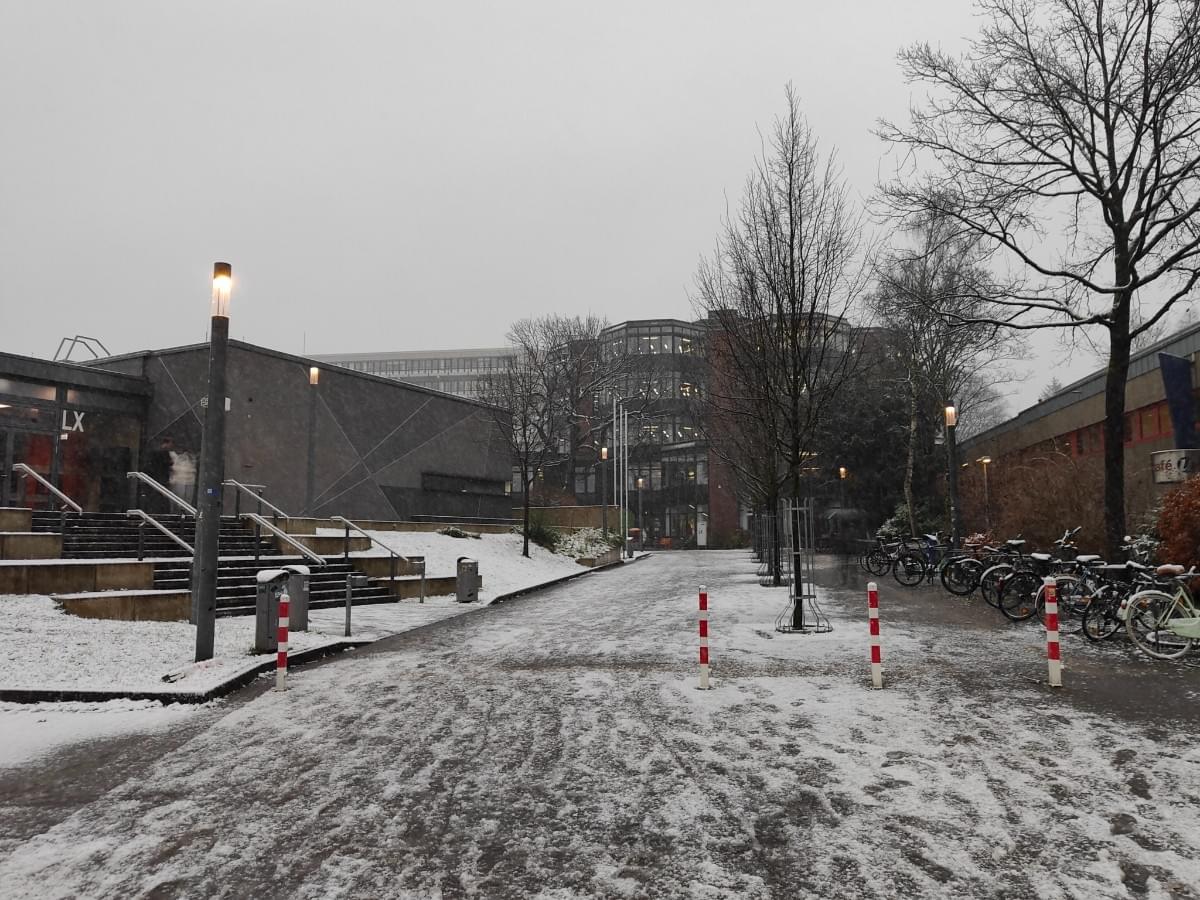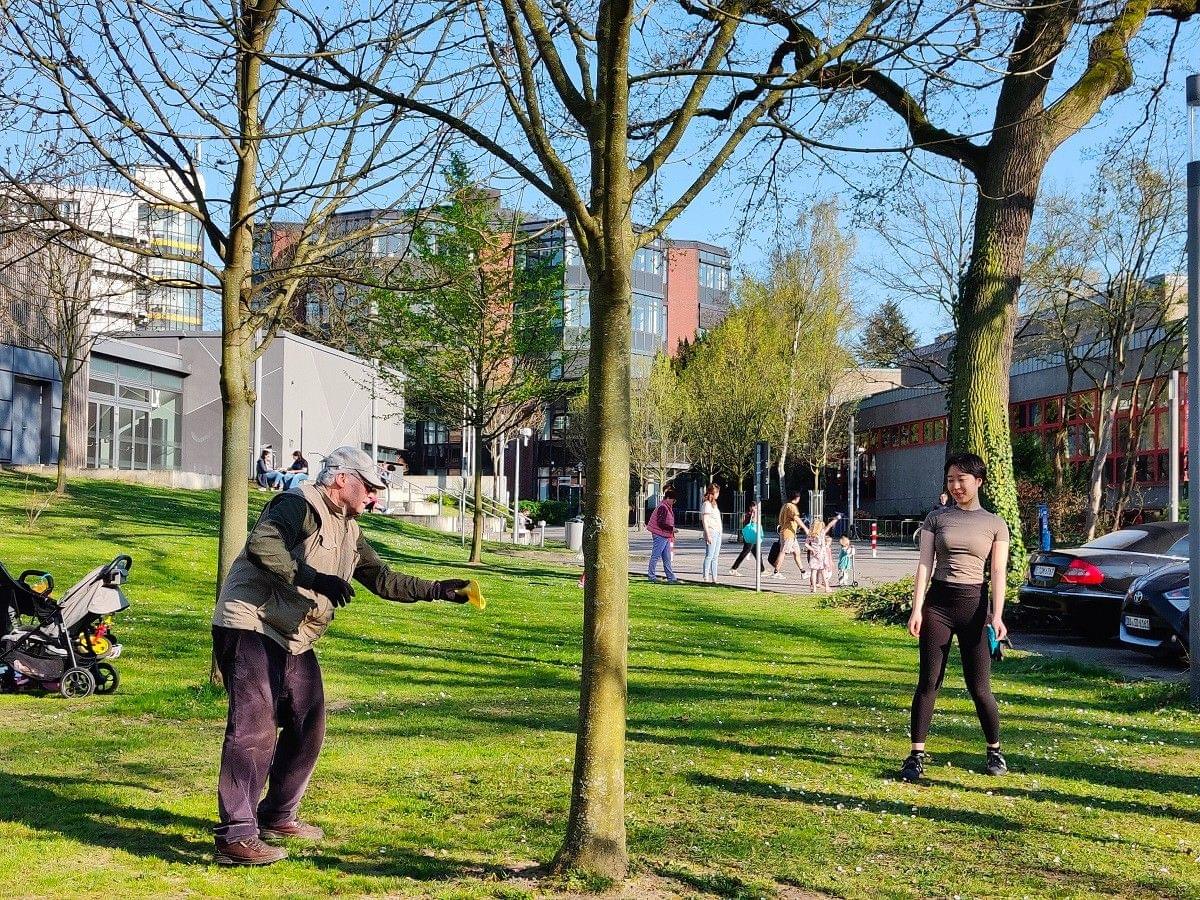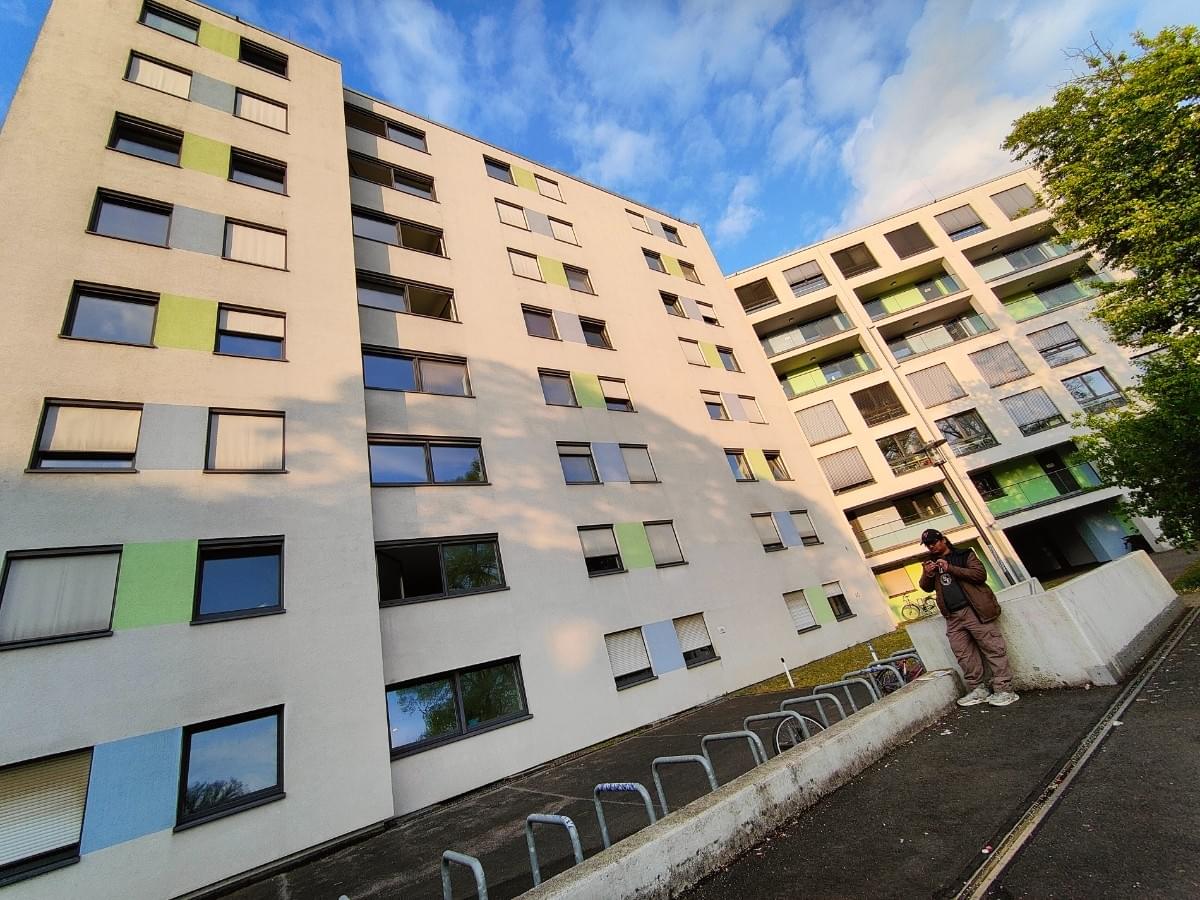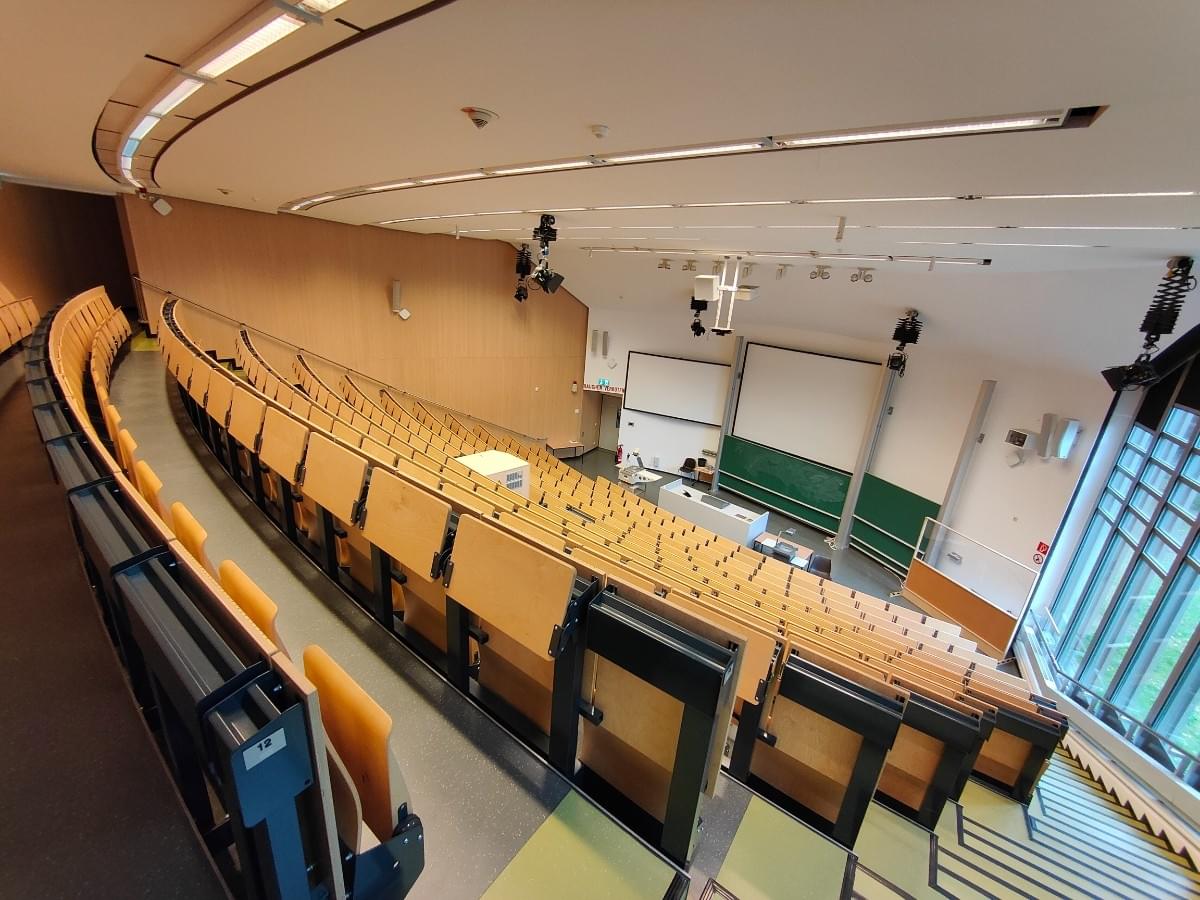What Students Say
Likes
- Infrastructure (classrooms, great libraries, canteens, cafes etc); availability of all facilities online (starting from course information, course contents, exam registration, receiving mails for each class to checking the current day menu in canteens);
- Connectivity between two campuses (university has bus service between two campuses); Ease of subject selection (there are teams to make personal suggestions);
- Stipend Facility (University has own stipend programms for the students, which anyone can apply for); Cultural Activities (two internal organisations are responsible for multiple type of social activies, like language learning, performing music, art, making friends, datin etc);
Dislikes
- Students cannot always get close to professors like in India, which is initially a problem, but with time, one can get accustomed to;
- Time limit during semester exams (normally 50 questions including long numericals are asked online within 60 minutes for many subjects);
- Study is too dependant on online contents; classes for each subject are conduct once a week, one needs to study the rest on his/her own;
Course Curriculum
- Materials are normally available online on a website called Moodle. Professors show the same PDFs or presentations while giving lectures. Some professors give lectures in english, some in german, some in both. Videos are also available for many subjects. Students need to spend time to understand the subjects properly. Contents are normally not that difficult to understand, but the number of items is huge. To solve the easy questions or problems within a limited time limit during exams, one needs to spend much time practicing. Some subjects need research works, making reports and giving presentations. For those, it's better to have good preparation. For each subject, normally one class takes place a week, lasting from 1 hr 30 min to 3 hrs. Students need to decide which subjects they are willing to study and time schedules if they want to attend the classes. But not attending classes is also common in germany. Number of students in our class is about 150; the number of Indian students is about 70.
Admission Experience
- I have only applied to this university, but for Masters in three different subjects. For Automotive Engineering, I could not qualify for the language requirement exam; for Power Engineering, I needed to have a background in Electrical Engineering and I am a Mechanical Engineer. Hence, I am studying Technical Logistics, this area is a big hub of logistics in all of europe and logistics has huge potential in the future.
- Academically all the public universities are considered to be equally recognised.
- I chose this because of 1) absence of tuition fees, 2) this university is pretty famous for researches about Hydrogen technologies, students can participate in that, 3) location (west germany is an industrial center of europe, plus one can many, many other countries without buying extra tickets), 4) this is not a technische hochschulee, peopl people can pursue PhD, if they will, after completing a master's, 5) relatively newer university
- I applied for technical logistics in the month of June and the beginning of the semester was the start of October, 2024, and the application lasts till August. For the winter semester, it's best to apply between November and January. Applying is done through the university website. It normally takes a maximum of 1 month to get a reply from the university. As few branches are NC free, that is, there is no seat limit, one needs to fulfil all the requirements written on the website. They are also very helpful for getting a VISA.
Faculty
- For our course, this ratio is about 20 to 1. Few professors are very good at conveying the materials. It also depends on the students. Professors normally teach with two presentation screens and also another display for any pen work. Boards are also present. If one can study properly, it should not be difficult to find a job.
- Nowadays it's a bit difficult to find a part-time job. But with dedication in searching, one can find. Moreover, in platforms like Zenjob and UCM, students can book shifts and work only for that shift. Referring others can work sometimes, but a very strong network needs to be made for that purpose. The current HOD for this course is very helpful; he helps students also with CV and other things
Campus Life
- There are many events, like cafe lingua clubs organise language meets almost every month, campusgarten club organises many small gatherings. Sommerfest and Uni Sport are some events. University has facilities for multiple sports starting from Gym, basketball, and Football to Karting etc. Hostels normally have table tennis facilities. I myself could participate twice in the musical performance activity, organized each semester. The sports clubs charge very little cost for regularly visiting them.
Part Time Jobs
- About 3 to 4% of the students can secure such roles in the university. They all are paid on an hourly wage basis; normally students are allowed to work a maximum of 20 hours per week. On campus, job fairs are sometimes organised. There are also tie-ups with external job fairs sometimes. Students can visit there and know about the job opportunities. As there are many students applying for the same job, it is difficult to secure one job.
- Universities, Restaurants or Cafes, jobs as delivery of foods, groceries and other similar things by bicycle; working in Warehouses, working in department stores or at big stores in malls. Many students also work in engineering posts with their skills in several computer software programs or languages. Applying for jobs is normally done through Indeed, Linkedin, Stellenanzeige, etc. University also has its own websites, where all the job notifications are available
Placement
- As Duisburg is one of the logistics hubs in germany, about 60% of students secure good jobs with an average salary of 50,000 Euros per year. Students need to find good companies for Internship of Working student jobs, where they can complete their master's thesis and can secure a job. There are other ways also, like applying through websites. But very good networking in Linkedin is necessary. Certifications are also very necessary to get good jobs. For logistics, Amazon and DHL are considered the best companies; it is also possible to join car companies through this course. There are numerous number of Logistics companies operating in Germany
Accommodation
- I applied for the hostel facility by the university. As there are long queues, students need to apply in advance. I applied at the end of June and got confirmation in September.
- All facilities like beds, mattresses, furniture, and kitchens with fridges, ovens, and microwaves are available. Internet connection is also available, one needs to carry Router for WIFI. All the hostels are pretty near to the university campus.
Exams
- For english taught programs, TOEFEL or IELTS are good options. For german taught courses, B2, C1 or TESTDAF exams. And for dual language courses, both english an german certificates are necessary. The level is different for different courses. For masters, a certificate (that the student studied all the subjects in English) from the HOD of a recognised university of the Bachelors study in India is sufficient.
- I got such a certificate from HOD of mechanical Engineering of Jadavpur University, Kolkata and that was sufficient for my english skill. For NC free subjects, normally no CV or motivation letter is necessary. But applicant needs to upload all the previous education documents including marksheets in detail, working certificate (if any), language certificates, passport etc. There was no interview for me
Fees
- There is no tuition fee at the University of Duisburg-Essen, but students need to pay a social contribution fee, including deutschland ticket for 6 months, which is about 350 Euro in total and needs to be paid twice a year, for each semester. Rents in university hostels cost between 350 and 400 euros per month; a deposit of caution money is extra. For students living in Duisburg or in Essen, 150 to 250 euros can be the average expense, depending on their lifestyle.
Scholarship
- Currently I am not receiving any, but there are plenty of scholarships. University itself offers a scholarship, available from the 2nd semester onwards for students of all countries and all subjects.
- During each semester, an event named "Stipendientag" is organised, where students can visit and talk to several institutions offering scholarships. There they can know about timelines, requirements, process of application, etc.






